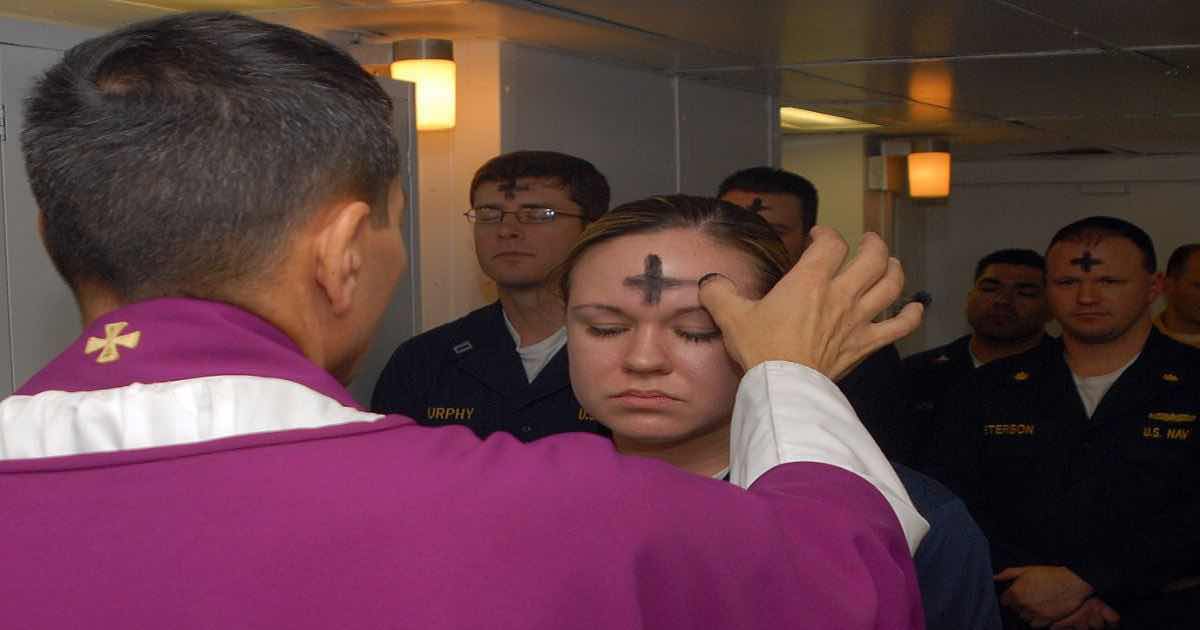
My Friends
“And your Father who sees in secret will repay you.” Matthew 6:4b
Lent begins. 40 days to pray, fast and grow in charity. We need this time each year to step back and reexamine our lives, to turn away from our sins and to grow in the virtues God so deeply desires to bestow upon us. The 40 days of Lent are to be an imitation of Jesus’ 40 days in the desert. In fact, we are called not only to “imitate” Jesus’ time in the desert, we are called to live this time with Him, in Him and through Him.
Jesus did not personally need to spend 40 days of fasting and prayer in the desert so as to obtain a deeper holiness. He is Holiness Itself! He is the Holy One of God. He is Perfection. He is the Second Person of the Most Holy Trinity. He is God. But Jesus entered into the desert to fast and pray so as to invite us to join Him and to receive the transforming qualities He manifested in His human nature as He endured the suffering of those 40 days. Are you ready for your 40 days in the desert with our Lord?
While in the desert, Jesus manifested every perfection within His human nature. And although no one saw this but the Father in Heaven, His time in the desert was abundantly fruitful for the human race. It was abundantly fruitful for each one of us.
The “desert” we are called to enter is one that is hidden from the eyes of those around us but is visible to the Father in Heaven. It’s “hidden” in that our growth in virtue is not done for vainglory, for selfish recognition, or to obtain worldly praise. The 40 day desert we must enter is one that transforms us by drawing us to deeper prayer, detachment from anything not of God, and fills us with love of those we encounter every day.
During these 40 days, we must pray. Properly speaking, prayer means we communicate with God on an interior level. We do more than attend Mass or speak prayers aloud. Prayer is first and foremost a secret and interior communication with God. We speak, but more than that, we listen, hear, understand and respond. Without all four of these qualities, prayer is not prayer. It’s not “communication.” It’s only us talking to ourselves.
During these 40 days, we must fast. Especially in our day and age, our five senses are overwhelmed with activity and noise. Our eyes and ears are often dazzled by TV, radio, computers, etc. Our taste buds are constantly satiated with fine foods, sweets and comfort foods, often to excess. Our five senses need a break from the bombardment of the delights of the world so as to turn to the deeper delights of a life of union with God.
During these 40 days, we must give. Greed often takes hold of us without us even realizing the extent of its grip. We want this and that. We consume more and more material things. And we do so because we seek satisfaction from the world. We need to detach from all that distracts us from God, and generosity is one of the best ways to achieve this detachment.
Reflect, today, upon these three simple words: pray, fast and give. Seek to live these qualities in a hidden way known only to God this Lent. If you do so, the Lord will begin to do greater wonders in your life than you may currently realize are possible. He will free you from the selfishness that often binds us and will enable you to love Him and others on a whole new level.
Lord, I give myself to You this Lent. I freely choose to enter into the desert of these 40 days and choose to pray, fast and give of myself to an extent I have never done before. I pray that this Lent will be a time in which I am transformed interiorly by You. Set me free, dear Lord, from all that keeps me from loving You and others with all my heart. Jesus, I trust in You.
Fr Ed Bakker
